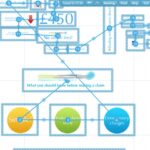In the rapidly evolving landscape of business technology, AI personal assistants are becoming a pivotal asset for professionals aiming to enhance productivity and streamline workflow.
According to a recent McKinsey Global Survey, 65% of organizations reported using generative AI regularly in 2024, nearly double the percentage from the previous year. This surge underscores the significant impact AI is making across various industries, especially in personalizing client interactions to save time and improve output. These technologies are now integral in automating not just mundane tasks, but also in refining customer engagement strategies.
As businesses increasingly adopt these tools, the potential for customized client services becomes more tangible and impactful. Let’s explore how these intelligent systems can transform the way we prepare and execute client presentations.
Leveraging AI for Smarter Meeting Prep
AI personal assistants excel at organizing and managing schedules to streamline meeting preparations. By consolidating calendars and tasks, these tools help professionals manage their time more effectively.
While they do not analyze client data or past interactions directly, AI personal assistants facilitate the scheduling and preparation process by integrating with other business tools. This integration provides users with access to the necessary information to customize their meetings to specific client needs and preferences, enhancing relevance and impact. These assistants excel in keeping all meeting-related tasks and information well-organized, ensuring that each presentation is prepared meticulously and aligned with scheduled deadlines. This organized approach boosts the overall efficiency and effectiveness of meetings.
Optimizing Preparation Before Meetings
Before any client interaction, presentations must be not only informative but also customized to the audience’s industry, company size, and even individual roles within the company. AI personal assistants streamline this preparation by fetching the latest data and insights related to the client’s market, suggesting adjustments to the presentation content in real time. This includes pulling the latest market trends and competitor analyses to ensure the presentation resonates with current realities.
This proactive approach allows presenters to be one step ahead, anticipating client questions and preparing comprehensive answers. This preparation ensures that the information is current, relevant, and poised to engage the client effectively.
Enhancing Engagement During Presentations
During presentations, AI personal assistants actively gauge audience engagement using real-time feedback tools, like sentiment analysis and engagement metrics. This data enables presenters to modify the pace, highlight engaging topics, and bypass sections that garner less interest. The ability to adapt to audience reactions on the fly is crucial for maintaining engagement and driving home key points effectively.
Assistants can propose immediate modifications to both the style and content of the presentation based on audience feedback, ensuring each session is both adaptive and engaging. The outcome is an interactive presentation that captures and retains the audience’s attention.
Automating Follow-Up and Task Management
Post-meeting, effective follow-up is crucial for nurturing client relationships and driving projects forward. AI personal assistants facilitate this by arranging subsequent meetings, crafting personalized emails that summarize key points, and alerting both clients and team members of impending deadlines and tasks.
They streamline communication by ensuring messages are clear, concise, and timely, which is essential for maintaining momentum post-meeting. They also monitor the effectiveness of these actions, offering insights into client engagement and the success of various strategies. This automation guarantees that no critical task is overlooked, enhancing the likelihood of project success and heightened client satisfaction.
Integrating with Existing Tools
To optimize performance, AI personal assistants integrate flawlessly with existing organizational tools such as CRM systems, email platforms, and collaborative technologies. This capability not only boosts productivity but also ensures comprehensive logging and accessibility of all client interactions for future reference.
This seamless integration is critical for creating a holistic view of client engagements, enabling better strategic decisions based on historical data. Such integration fosters a cohesive workflow environment where all client-related data—from meeting transcripts to project schedules—is readily available, streamlining productivity and minimizing administrative burdens.
Data Security and Privacy Concerns
The advantages of AI are considerable, yet they bring challenges in data security and privacy. Organizations must implement AI systems with stringent security protocols to safeguard sensitive client information against unauthorized access or breaches. It is also vital for organizations to regularly update their security protocols to address emerging threats.
It is imperative for companies utilizing AI personal assistants to adhere to all applicable data protection regulations and manage client data with secure systems. Building trust and assuring clients of the confidentiality of their information are achieved through open communication about the use and protection of client data.
Conclusion
AI personal assistants are reshaping how businesses prepare and execute client meetings. By customizing presentations in real time, these tools not only conserve time but also improve the quality of client interactions, making meetings more productive and interactive. As the adoption of AI continues to grow, business communications are evolving towards more personalized, efficient, and secure engagements. For professionals aiming to lead in their fields, now is the opportune moment to leverage these technological advancements and integrate them into their operational strategies.






